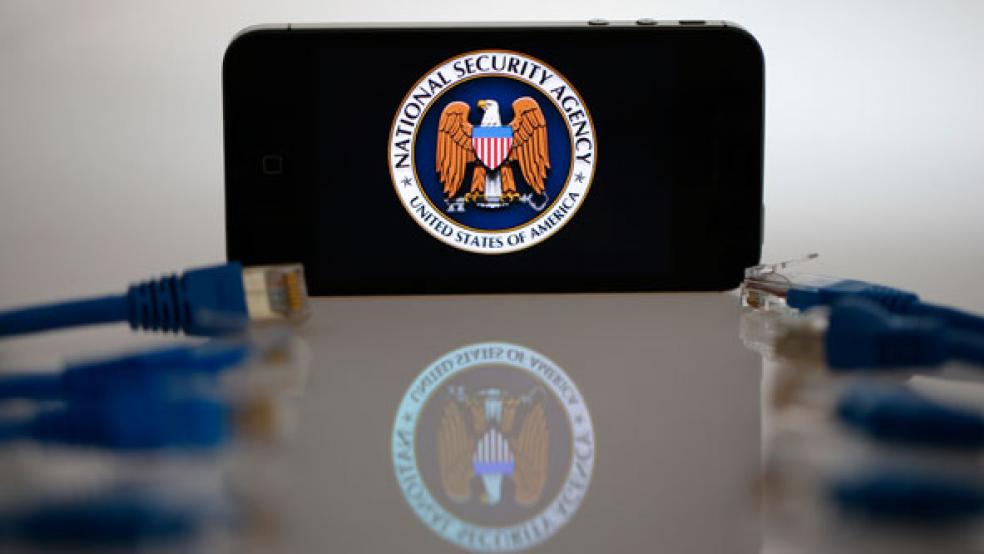In a Christmas interview, NSA leaker Edward Snowden confidently declared “Mission Accomplished” for speaking about U.S. surveillance practices. If his goal was for those practices to change dramatically, then by Friday evening, his mission is likely to fail.
That’s because President Obama, in a highly anticipated speech on privacy and the NSA scheduled this morning at the Justice Department, is not expected to change much at all. A New York Times report on Wednesday indicated that the president was likely to ignore many of the recommendations made by a panel of experts who reviewed NSA’s practices last fall.
Related: DOD's $5 Billion Push to Stop the Next Edward Snowden
The five-member panel, made up of intelligence and legal experts, briefed Obama on their findings in December. Their most sweeping recommendations were to limit the NSA program that collects logs of American phone calls - information known as metadata. They also called for the president to leave the data in the hands of private companies, and that a court order should be required to access it.
The Times says Obama plans to put these recommendations aside. In a leak obviously calculated to lower the expectations of privacy advocates ahead of the speech the president would place some limits on metadata collection, appoint a public advocate to represent privacy concerns in the Foreign Intelligence Surveillance Act court, improve privacy protections for foreigners.
But the president is not expected to embrace private metadata storage or the need for a formal process to access data. Privacy advocates, who were once enthusiastic about the prospect of significant change to NSA practice, have now tempered expectations.
Related: Edward Snowden—From Whistleblower to Traitor
“It’s hard to predict in terms of what exactly he’ll say,” said Jake Laperruque, a fellow on privacy, surveillance and security at the Center for Democracy and Technology. “Our biggest priority is that he’ll end communication of metadata and return to a system of individualized records.”
The American Civil Liberties Union, perhaps the greatest privacy advocate since the Snowden leaks began, was more damning in their assessment of the president, even before he gave the speech.
“Keeping the storage of all Americans’ data in government hands and asking ‘lawmakers to weigh in,’ as reported, is passing the buck – when the buck should stop with the president,” Anthony D. Romero, the executive director of the ACLU said in a statement.
Related: $2 Billion NSA Spy Center Is Going Up In Flames
“If Congress fails to act on this matter, as it has on other critical policy issues, President Obama will effectively be handing off a treasure trove of all our private data to succeeding presidents – whether it is Chris Christie, Mike Huckabee, or Hillary Clinton.”
Liza Goitein, co-director the Brennan Center for Justice's Liberty and National Security Program at the NYU School of Law, said Obama’s speech would likely be an attempt to balance the needs of the intelligence community with those of the public and Congress.
“I don’t envy him,” Goitein said. “He’s caught in a position with an intelligence community that would rebel and a Congress that probably will not renew the Patriot Act next year if he does make a change, and the public, half of which is incensed.”
She added, “He’s hoping the public can be persuaded that real reform has happened even though it hasn’t.”
This article has been updated to reflect that the president's speech is this morning.
Top Reads from the Fiscal Times:
- U.S. Spends Billions in World’s Most Corrupt Country
- Killer Robots: If No One Pulls the Trigger, Who’s to Blame?
- U.S. Drones Could Decide the Battle of Fallujah





